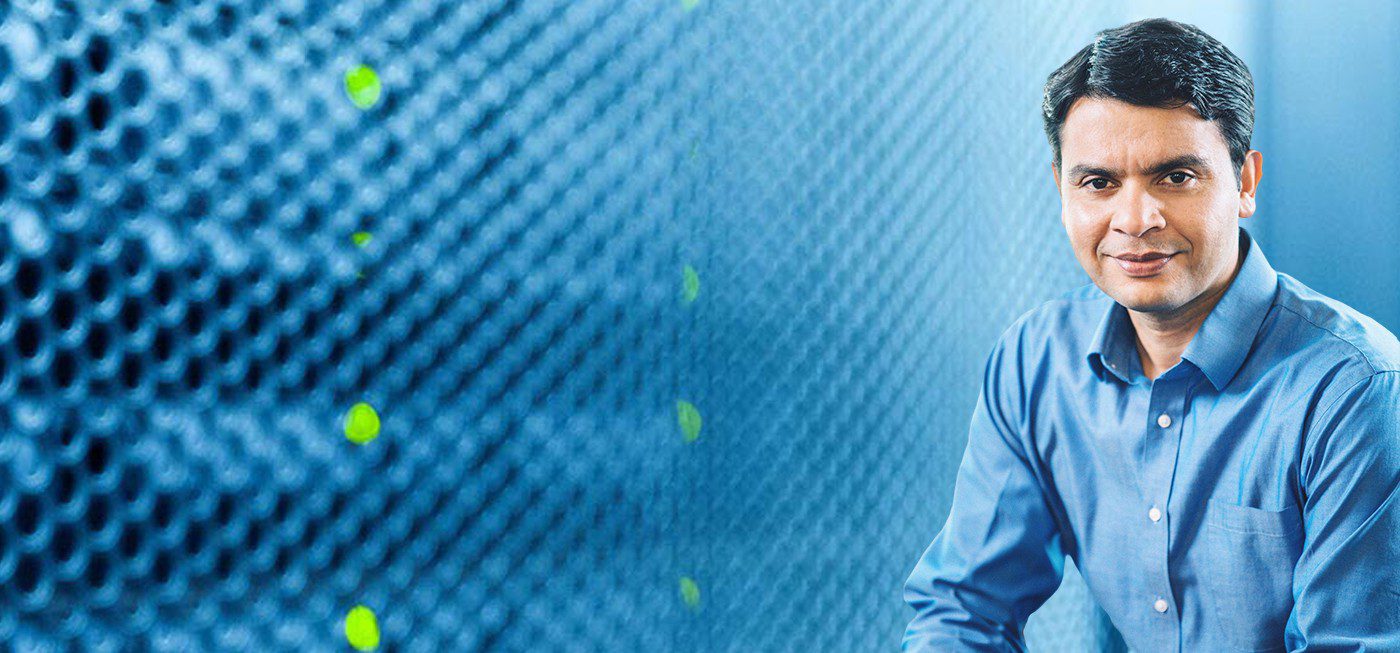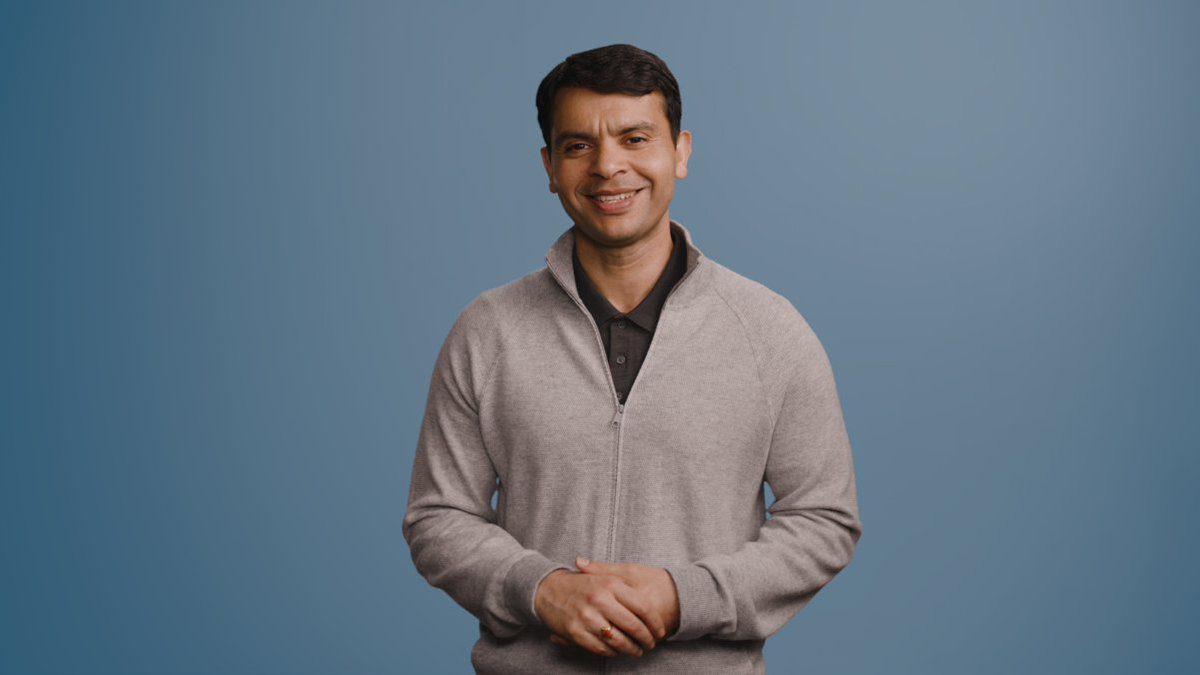(October 27, 2021) Back in the day, when someone wanted to launch or run an IT firm, they had a number of things to check off their lists: buy computer servers from one vendor, storage from another, and then connect the two with expensive networking before running applications. Needless to say, the process was cumbersome, expensive and hard to manage. That is, until, in stepped Mohit Aron, an enterprising Indian entrepreneur, with a solution that changed the way the IT industry functions. He built an IT framework that combines storage, computing, and networking into a single system to reduce complexity and increase scalability.
Today, Aron is known as the Father of Hyperconvergence, the main technology at his first startup Nutanix, now a public company valued at over $5 billion. He then went on to set up Cohesity, which develops software that allows IT professionals to backup, manage, and gain insights from their data, across multiple systems or cloud providers. His ingenuity earned him the CRN Top 25 Innovators of 2012 title; in 2016, Cohesity was on the list of 10 Storage Emerging Vendors You Need To Know, and was also listed as one of the Top 25 Disruptors of 2016.

From Chandigarh to the world
Born and brought up in Chandigarh, Aron grew up with parents who encouraged him to expand his horizons. His father worked with the Indian Forest Services, while his mother was a homemaker. In the India of the late 1980s computers were still relatively low on the popularity charts and therefore not everyone’s first career choice. However, Aron had heard people say that computers were the future; it piqued his curiosity. With a high JEE rank, the Chandigarh lad found himself a spot in the prestigious IIT-Delhi’s Computer Science stream in 1991. The institute had just received a donation of mainframe computers from a British company and the blinking lights and futuristic sounds at IIT-Delhi’s computer center had Aron hooked. It was a whole new world.
This curiosity and interest soon developed into a passion and he would spend hours programming: Unix, C and C++ became his best friends. According to an interview in YourStory, Aron said that he soon came to be regarded as one of the best programmers in his batch. “I would get lost in the world of coding. It was a world of its own and nothing else mattered while I was at it. It was all science with no room for ambiguity, only logic,” he said.
IIT Delhi's Distinguished Alumnus Mohit Aron Gifts USD 1 Million to IIT Delhi’s CSE Department
Link for the press release: https://t.co/oDSzEVeqlL@mohitaron @Cohesity @nutanix @iitdelhi @EndowmentF @EduMinOfIndia @dpradhanbjp @PMOIndia @narendramodi pic.twitter.com/7uCrzYN9Gq
— Prof. V. Ramgopal Rao (@ramgopal_rao) October 18, 2021
Soon after he graduated from IIT in 1995, he moved to the US for his Masters and then PhD in Computer Science from Rice University in Houston. It was here that his passion for the subject grew; he specialised in distributed operating systems. During his PhD, he built the first scalable web server, the concepts of his research were used by IBM in running the web server for the Olympics in the 90s.
The beginning of a fruitful journey
Aron began his professional journey with Zambeel, a California-based data startup, as a principal software engineer before joining Google as a staff engineer. Here, he was an integral part of the team that built the Google File Systems, that are still used by the tech giant to store and manage data.
Incidentally, Aron was offered a job by a Google engineer soon after his PhD, but he chose to forego it to join Zambeel, which was building distributed storage technology, an area that fascinated him. As luck would have it, the dotcom bust put a spanner in the works for the startup and Aron was once again approached by the Google engineer. This time, he decided to take up the job as it was clear to him that the company was going to be a game changer. That Google engineer is Jeff Dean, the brain behind the company’s tech projects and the current lead of its AI division.
His time at Google taught Aron how to build big systems that could be scaled. By 2007, he was ready to branch out on his own and bring his learnings to the real world; but he didn’t know the first thing about building a company. So, he joined data warehousing startup Aster Data Systems where he learnt what to do and not to do when building a startup. A couple of years later, he was confident enough to build his own company and he founded Nutanix in 2009 along with three others from Aster. It was here that he pioneered the concept called hyperconvergence (hence, the moniker). The idea caught on and today Nutanix is a public company worth over $5 billion.
In 2013, Aron launched Cohesity, a company with an estimated $300 million in revenue and growing at 70% annually. Cohesity is backed by Qualcomm Ventures, Sequoia Capital, SoftBank, and Wing Ventures. According to Aron, data growth is exploding while also becoming increasingly fragmented, which makes Cohesity the perfect fit in today’s world. The Global Indian entrepreneur is working towards making the company a single platform to manage all forms of data in an easy manner. Some of Cohesity’s clients include the Hyatt chain of hotels, Novartis, and a smartphone major. It also recently partnered with Amazon Web Services to manage cloud data as a service.

Giving Back
For an Indian who’d landed in the America of the 90s with less than a thousand dollars, Aron has come a long way. And he isn’t one to forget where it all started for him. With this in mind, he makes it a point to give back in whatever way he can. Be it through technical and entrepreneurial sessions, mentoring young entrepreneurs or donating to charitable organisations. Aron, who is on the engineering advisory board for Rice University, is also involved in encouraging Work2Future, a San Jose-based foundation that helps people find employment and provides career guidance to those who need it.
He recently donated $1 million to his alma mater IIT-Delhi to help fund the institute’s computer science and engineering department. The fund will be used to support the faculty’s research activities and ensure that students can attend conferences, workshops, and competitive events in India and abroad.


